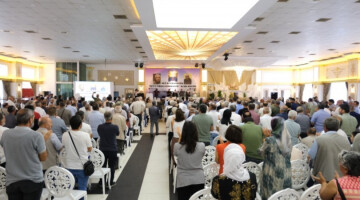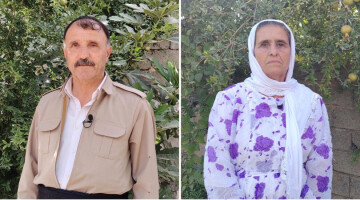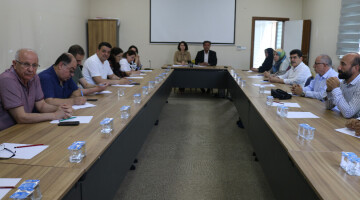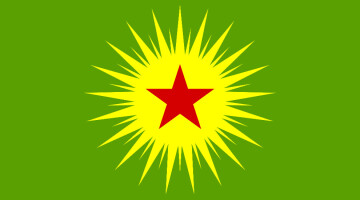Twelve members of the Turkish occupation forces were killed and four others injured in retaliatory actions by the guerrilla organisations HPG and YJA Star in Southern Kurdistan on Sunday, reported the HPG press centre in an assessment of the current war in the guerrilla areas in southern Kurdistan (northern Iraq). According to the information, the latest guerrilla actions took place on the occasion of the 40th anniversary of the death of Mehmet Hayri Durmuş.
Mehmet Hayri Durmuş was a central member of the PKK. On 14 July 1982, together with Kemal Pir, Akif Yılmaz and Ali Çiçek, he called a death fast in the "Hell of Amed", the notorious prison of Diyarbakır, against the repressive regime of the Turkish military junta that had seized power on 12 September 1980. They demanded the "end of torture, enforced military discipline and uniform clothing". This action is considered as the "first spark of resistance", but it was not only started to denounce the conditions in the prisons, but also to send a revolutionary signal to the people outside the prison walls, in the villages and towns, and to the left movements, in order to incite the masses anew to fight against the oppressive regime of Turkey. All four revolutionaries lost their lives during the death fast.
"On the 40th anniversary of his death, we remember with respect and gratitude Dr Mehmet Hayri Durmuş, co-founder of our PKK party, creator of our Dervish-like ascetic life, who was always committed to the people, taught us the existence of the sincere revolutionary and co-led the 14 July Resistance. Comrade Hayri was one of the architects of the resistance in the shape of the PKK and is still symbolic of the guiding principle of never endangering the organised life of the party, no matter how difficult the conditions may be. As his companions, we promise to take his uncompromising spirit of resistance as a guiding principle until victory. Our attachment is to comrade Hayri and his ideals and dreams, which we will achieve no matter what," stated the HPG.
UNSUCCESFUL ATTEMPT TO OVERRUN GUERRILLA POSITIONS
According to the HPG statement, an attempt by the occupation forces in Zap to advance on the "Şehîd Aryen" defence positions in Çemço was answered by guerrillas with heavy weapons fire. At the Girê Cûdî resistance massif in Metîna, a chemical weapons attack against guerrilla positions was thwarted by a combined action of sabotage tactics and the use of hand grenades and light weapons. In Metîna, explosive charges attached to Girê Amêdî by Turkish soldiers were also seized and destroyed in a controlled manner.
SPECTACULAR ACTION AGAINST TURKISH OCCUPIERS
Probably the most spectacular action on Sunday against the occupying forces of the Turkish army took place at the Şehîd Çekdar tunnel complex, which is also located in Girê Cûdî, after "enemy units" tried to enter the massif. After a brief observation, the guerrillas struck the unit with creative methods. The Turkish squad was ambushed while advancing into the tunnel and was stopped by guerrilla sabotage. At about the same time, mobile guerrilla units with hand grenades, light weapons and sniper rifles took action. The number of fatally wounded soldiers is reported by the HPG to be ten. "In order to prevent our forces from recovering the weapons and equipment of the killed occupiers, the site with the dead bodies was bombed by the Turkish army both from the air and from the ground. A drone sent to reconnoitre over the battle area was captured and fired upon by us. Immediately afterwards, two occupants moving into the area were punished by an HPG sniper. Several incendiary missiles were subsequently fired at the area, where corpses remained, from an attack helicopter over the area. The battle area and several bodies remain under the control of our forces."
NAMES OF KILLED SOLDIERS
The first names of ten of the soldiers killed are Savaş, Fatih, Gökhan, Serkan, Burak, Naci, Harun, Mert, Oğuz and Fuat, according to the HPG. The Turkish Ministry of Defence had announced the deaths of three staff officers and a sergeant major yesterday: Harun Yıldırım, Savaş Borlu, Fatih Kalkan and Gökhan Ağıl.
ATTACKS BY THE TURKISH ARMY
In its statement, HPG also pointed to the continued use of prohibited combat equipment by the invading forces. According to the statement, a burning liquid was first fed into a tunnel facility in the resistance area of Şehîd Fedakar before unknown combat agents were fired at the massif from positions held by the occupying forces. "The substance atomised into particles in combination with water and stuck to the rock mass," it said.
42 AIR ATTACKS ON GUERRILLA AREAS
The HPG put Sunday's air strikes on guerrilla areas in Southern Kurdistan at 42. At least 22 of these air strikes were carried out by fighter jets, while dozens of artillery attacks were carried out from Turkish outposts. The Şehîd Bahoz tunnel facility was also attacked with flammable materials and partly set on fire.














